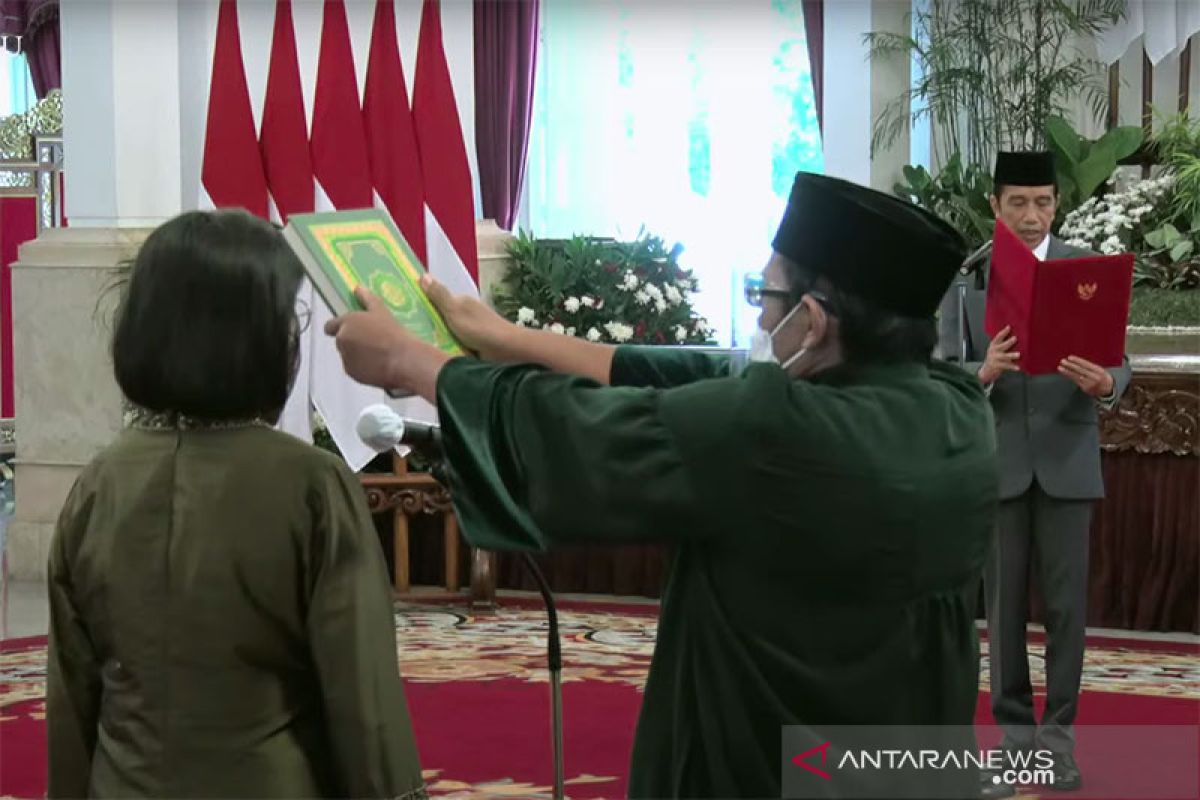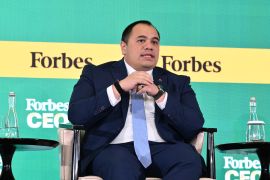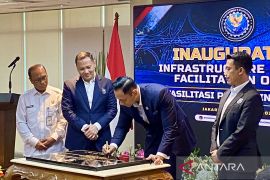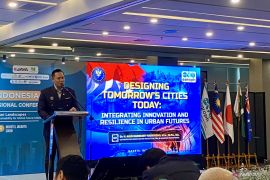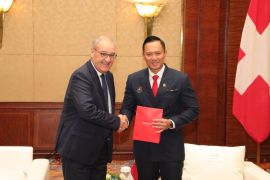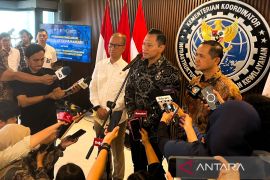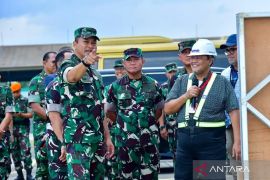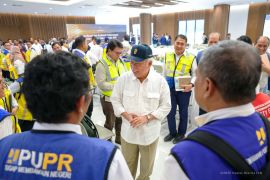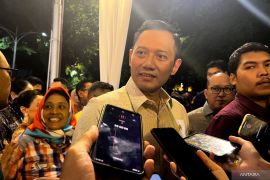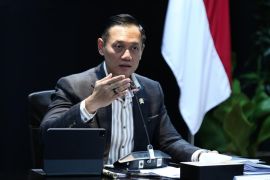Since the start of his first term in October, 2014, President Joko Widodo (Jokowi) has prioritized national infrastructure development to strengthen connectivity, economic growth, and national unity.
With the nation facing economic difficulty owing to the pandemic, a gap has emerged between development demand and the availability of funding resources. Hence, the Widodo administration has been exploring ways to attract foreign investment to finance infrastructure development projects, as well as support economic recovery efforts.
According to Widodo, a Sovereign Wealth Fund (SWF) would serve as a breakthrough in these endeavors and help the nation attract funding.
On January 27, 2021, Widodo installed the Finance Minister as chairman and appointed four other members of the Supervisory Board of SWF, termed the Indonesia Investment Authority (INA), based on Presidential Decree Number 6/P of 2021 on the appointment of membership of the Investment Authority Supervisory Board.
Finance Minister Sri Mulyani Indrawati has been appointed as chairman and member of the INA. The other members are Minister of State-owned Enterprises (SOEs / BUMN) Erick Thohir, Darwin Cyril Noerhadi, Yozua Makes, and Haryanto Sahari.
On December 15, 2020, the President had issued three governmental regulations on the establishment of Indonesia’s SWF, as mandated in the country’s first omnibus law, Law No. 11 Year 2020 on Job Creation.
The objective of INA will be to increase and optimize long-term investment to support sustainable development, according to Article 5 of the Law. INA will serve as a legal entity answerable to the President and have special authority to represent the sovereign Indonesian government.
The INA is expected to grab investment opportunities and become an alternative solution for development financing.
To kick-start the fund, the INA will channel an initial US$5 billion in cash and stocks in state-owned enterprises (SOEs).
The additional capital will be in the form of state enterprises' assets, and the INA will cooperate with strategic foreign investor partners that facilitate the entry of overseas funds into the country as equity, and not as debt.
President Widodo is optimistic that funds amounting to US$20 billion would flow into the INA early this year.
It was reported in November, 2020 that the U.S. International Development Finance Corporation (US DFC) has signed a letter of intent to invest US$2 billion in INA.
The signing by DFC chief executive Adam Boehler took place in Washington last November, during a visit made by Indonesian delegates, according to a statement issued by the Coordinating Ministry of Maritime Affairs and Investment.
In addition, the Japan Bank for International Cooperation (JBIC) is also reportedly willing to invest US$4 billion in INA.
"JBIC is ready to support SWF Indonesia's funding of US$4 billion, twice as much as what was pledged by DFC," Coordinating Minister for Maritime Affairs and Investment, Luhut Binsar Pandjaitan, said in a statement after meeting Maeda Tadashi, the governor of Japan Bank for International Cooperation (JBIC) in Tokyo, in early December, 2020.
Luhut had led an Indonesian delegation to Japan that included State-Owned Enterprises Minister, Erick Thohir, and Indonesian Ambassador to Japan, Heri Akhmadi. They had held a marathon meeting with Tadashi and at least 20 other potential Japanese investors in the finance and energy sector.
Thohir affirmed that both sides will soon follow up on the commitment at a technical level. The Indonesian government is optimistic of the JBIC fulfilling its investment commitment during the first quarter of 2021.
Meanwhile, Finance Minister Sri Mulyani Indrawati on January 25, 2021 outlined eight advantages of setting up the INA before the members of Commission XI of the House of Representatives (DPR) in Jakarta.
The advantages include the fact that INA will focus on capital maximization; its management will follow international business practices; its economic objectives will be in balance with its commercial benefits; it will have a strong legal basis and flexibility in carrying out investment; it will have the capability to capture the appetite of foreign investors; and, lastly, professional and independent management.
As for its objectives, the INA is expected to optimize the central government’s investment value and increase foreign direct investment (FDI).
In addition, the INA could draw global funding for the development of national infrastructure, according to Deputy Minister of State Enterprises, Pahala Mansury.
"SWF (is meant) for optimization of state enterprises assets to ensure that the firms not only use investment resources to build infrastructure, but also draw foreign funds while continuing to run priority programs," Mansury said at the 11th Kompas 100 CEO Forum recently.
According to Mansury, SWF is among the government's innovations to grab investment opportunities for economic recovery amid the pandemic.
He said he is optimistic that the SWF would help attract more foreign funds to the country.
"Investment (will help) to attract another investment and run the national strategic programs (PSN). We have a presidential decree on PSN, but we hope that we can also invite investment in the sectors," Mansury remarked.
In the meantime, Deputy Finance Minister Suahasil Nazara has said Indonesia's SWF is different from those established in other countries.
"The main logic of Indonesia's SWF is different from the SWFs in other countries. The logic of Indonesia's SWF is that we want to invite foreign direct investment (FDI), or foreign funds, if I call it," he said during the BRI Group Outlook 2021 webinar on January 28, 2021.
The influx of foreign funds into Indonesia, through the INA, would not be considered as debt, but as equity, so Indonesia would offer a form of stimulus to investors, he noted.
"Foreign funds (would) enter Indonesia not as debt, but as equity. Hence, to attract the entry of funds as equity, Indonesia provides a kind of bait," he explained.
Nazara said he is optimistic that the later portfolio as equity would not be short-term, but long-term.
"This is what has been thought that how the SWF will design which projects to be offered as joint venture and which projects that can really become a game-changer from long-term development funding," he expounded. (INE)
Related news: SWF to attract global funding for infrastructure: Deputy Minister
Related news: Key logic of Indonesia's SWF differs from other nations: Nazara
Related news: Jokowi urges Indonesia's SWF to work at full throttle
EDITED BY INE
Editor: Suharto
Copyright © ANTARA 2021
